














We’d like to take this opportunity to thank our contributors, sponsors and subscribers for their continued support and dedication to advocating ADR and mediation. Our commitment to provide those in the workplace with the skills and contacts to mediate and offer effective training is unwavering.
We’d also like to take the opportunity to welcome you to UK Mediation Conference 2025 . The event is presented by Iconic Media Solutions and Acas with the aim of bringing together HR professionals, leaders and experts in ADR to better understand managing workplace conflict.
Thank you to our sponsors, speakers and event partners; Acas, the BBC, The TCM Group, Consensio, CMP, Sheridan Worldwide, We Restore Calm, SMG Mediation Ltd, IPOS Mediation and Tutu Foundation UK.
We hope you enjoy the day and find the content both insightful and practical. We look forward to seeing you at future conferences!

Craig Kelly, Managing Director

Read all issues and subscribe:

Published by Iconic Media Solutions Ltd, 60B Westcote Road, London SW16 6BN
t: +44 (0)20 3693 1944
e: info@iconicmediasolutions.co.uk w: www.iconicmediasolutions.co.uk
Transforming Work: How mediation and coaching can be used to align People, Culture and Leadership
Essential Conflict Management Skills for the Modern Workplace
Kintsugi-ing your Workplace Culture: Fostering a Repair Culture To Build Strong Bonds, Resilience and Excellence in the Workplace
From Grievance to Resolution: Reframing Conflict in the Workplace
Directory of Mediation & Training Providers
www.ukmj.co.uk

www.ukmediationconference.co.uk
Whilst every care has been taken in compiling this publication, and the statements contained herein are believed to be correct, the publishers do not accept any liability or responsibility for inaccuracies or omissions. Reproduction of any part of this publication is strictly forbidden. We do not endorse, nor is Iconic Media Solutions Ltd affiliated with any company or organisation listed within. It is advised before appointing a mediator or trainer that you carry out your own quality and competence checks.


T he mult i award-winning ant idote to grievance, discipline, and per formance procedures. Trusted by hundreds of leading organisat ions, including Next , KPMG, t he BBC , NHS England, TSB, Aviva and Burberr y.
TCM’s Resolution Framework allows people to discuss their issues to find a quick and workable outcome. It’s just good business sense – Ant hony F itzpatrick , Head of Colleague Experience & Employment Policy at Aviva
T he 2025 edit ion has now been packed wit h power ful new updates, including:
An AI-powered Resolut ion Hub™
Fresh insights and evolved capabilit ies of T he Resolut ion Framework™ + Resolut ion Index®
Bonus access to t he new Pocket Coach™ for managers
It’s yours to download for free! Scan t he code or visit: resolut ionframework .com


By David Liddle, CEO and Founder, The TCM Group
In a world defined by volatility, uncertainty and accelerating change, our traditional approaches to people, culture and leadership are no longer tenable. The outdated paradigms of excessive inaction or punitive overreaction were never fit for purpose, and they certainly aren’t now. The time for a resolution revolution is now, and it is urgent. The successful organisations of the future - measured in terms of talent acquisition, talent retention, productivity, customer experience and investor sentiment - are those which adopt a transformational culture. A culture which is rooted in fairness, compassion, justice, inclusion and sustainability. For it is these principles which are the drivers of high performance, not autocracy, power, hate, polemic, blame, punishment and retribution.
As a species, we are rapidly approaching an inflexion point. That inflexion point is being felt in every organisation across the globe. And it’s not just AI. Now more than ever, organisations must prioritise meaningful dialogue, human connection, and emotionally intelligent leadership.
The symptoms of a broken system are clear: bullying, incivility, toxic cultures, and overflowing grievance caseloads. These aren’t isolated issues – they’re systemic and structural

failures designed and overseen by HR professionals, lawyers and leaders. At TCM, we believe the time has come to radically reframe resolution and rehumanise the workplace. This is the mission that energises our work in partnership with thousands of organisations across the UK and internationally.
Recent data reinforces the urgency. Gallup’s 2025 State of the Global Workplace report found global employee engagement fell from 23% to 21% in 2024 – only the second drop in a decade – costing the global economy $438 billion in lost productivity. Much of this decline is linked to a drop in manager engagement. Meanwhile, Deloitte’s 2023 Global Human Capital Trends report revealed that while 93% of organisations recognise the value of moving to a skills-based model, only 20% feel ready to make the shift. These figures reflect not just a leadership deficit, but a cultural one.
At TCM, since 2001, we’ve helped more than 2,000 organisations transition from outdated grievance and
disciplinary procedures to purpose-led, values-based, person-centred approaches. At the heart of this shift is our Resolution Framework™ - a holistic model that fuses procedural rigour with restorative dialogue, enabling early, compassionate and constructive resolution.
This isn’t theory – it’s practice. Organisations including Burberry, BBC, Nationwide, Next, KPMG, NHS England, and the London Ambulance Service have seen measurable impact: increased engagement, reduced tribunal risks, improved leadership confidence and stronger cultural cohesion. So confident are we in the model’s effectiveness, we offer it open-source and work hand-in-hand with clients to embed it meaningfully.
As Deborah Arnold, Regional HR Manager at Next, put it: “TCM’s Resolution Framework has truly impressed. It is fully aligned with the needs of the business and what our people need. Introducing a ‘resolution first’ approach has empowered our managers to engage in early-stage conversations in a supportive and non-confrontational way.”
Yet despite the clear evidence, mediation and restorative approaches remain underused. In an age where the tools are readily available, continuing to rely on adversarial processes is not just outdated – it is organisational malpractice. Change is not optional. It is long overdue.
According to Acas, unresolved workplace conflict costs the UK £28.5 billion a year – over £1,000 per employee. But this isn’t just a financial issue. The real costs are eroded trust, diminished psychological safety, rising stress levels, and cultures of fear and reactivity.
The Resolution Framework™ flips this paradigm. It equips HR teams, leaders and employees alike with the skills and confidence to prevent, navigate and resolve conflict before it escalates. Our training, coaching and consultancy services
enable organisations to move from ‘power over’ to ‘power with’ and from fear to fairness.
Participants in our mediation training frequently tell us how life-changing the experience is. Sharon McKoy, Assistant Director at the University of Wolverhampton, shared:
“I began as a complete novice, feeling in the dark – but completed the course with confidence in my potential as a mediator. Thank you, TCM!”
Her story is a reminder: transformation isn’t just possible, it’s inevitable when we invest in people with care and intention. This isn’t about firefighting or risk mitigation – it’s about designing workplaces where the fire never ignites. All too often, traditional HR processes are the match that sparks the blaze, while those invested in maintaining adversarial systems, and costly legal processes hurl stones at the fire engines… if they arrive at all.
Let’s shift metaphors from fire engines to aviation. Think of mediation as the departure gate, coaching as the runway, and the Resolution Framework™ as the control tower. At TCM, we help relationships achieve lift-off. By integrating transformational coaching into mediation, we build emotional insight, interpersonal skill and a readiness for sustained resolution.
Clients like Superdrug, Daikin and Canterbury Christchurch University have seen the power of this synergy. Whether preparing a senior leader for a difficult conversation or supporting employee’s post-resolution, coaching offers the emotional scaffolding that enables sustained growth and repair.
Through our coaching programmes, we regularly address imposter syndrome, psychological safety, avoidance behaviours and communication breakdowns. Our HR as Coach and Mediator course, one of our most in-demand


offerings, empowers HR professionals to lead resolution with presence, confidence and compassion.
As Ruth Banks from Sopra Steria noted: “TCM’s HR as Coach and Mediator course is excellent –insightful, practical, and packed with strategies to support managers through conflict and change.”
Let’s be crystal clear – mediation isn’t a ‘nice to have’. It’s a business-critical capability for 21st-century leadership. We train over 1,000 workplace mediators annually through our National Certificate in Workplace Mediation™ and have supported hundreds of organisations to establish in-house mediation schemes. Our award-winning FAIR Mediation Model is built on empathy, impartiality, and psychological safety – delivering a 93% resolution rate.
Recent TCM masterclasses on Influence, Authority and Bias in Mediation have shown how hungry professionals are for psychologically rich, socially aware, and practically applicable approaches to resolution. We must confront these dynamics head-on if we want truly fair and inclusive systems.
For hybrid teams and frontline staff alike, mediation provides a faster, more effective and humane alternative to formal litigation-style processes. It transforms conflict into connection – friction into insight.
The Resolution Framework™ is one pillar of our broader Transformational Culture Model™ – an operating system that aligns purpose, values, behaviours and systems. Our diagnostic tools, including the Resolution Review™ and Culture Insights® audits and our multi award-winning consultancy and training services, help organisations build
inclusive, values-led and high-performing cultures from the inside out.
As I often say, “Culture is not built by chance. It is created by choice.”
In this VUCA world – volatile, uncertain, complex and ambiguous – organisations must move beyond process and procedure. What the future of work demands is courageous leadership, compassionate cultures, and systemic approaches to fairness and inclusion.
As Andrew Massiah, HR & EDI Manager at LSE put it: “TCM offer a high-quality, customer-focused service from start to finish.”
If you’re a mediator, coach, HR leader, CEO or policymaker – this is your moment. Let’s redesign the workplace around connection, accountability and trust.
• To find out more about our training, consultancy, and comprehensive resources, visit www.thetcmgroup.com
• We are offering the Resolution Framework™ to organisations on an open-source basis. Visit www.resolutionframework.com to request your copy.
David Liddle is CEO and founder of The TCM Group, a leading expert in people, culture and resolution. He is the author of Managing Conflict and Transformational Culture, and a recognised thought leader in transformational leadership, organisational justice, and cultural change.


By Alexandra Efthymiades, Director and Co-founder of Consensio
We live in a time of extraordinary technological connectivity, yet our human connections often feel more fragmented than ever. The pace of work, the dominance of digital communication, hybrid and remote arrangements, and growing societal polarisation all play a part. We are constantly engaging, but how often are we truly listening? How often are we pausing long enough to consider how we speak and what impact our words may have on others?
In this evolving landscape, the skills required to manage workplace conflict have also shifted. We need to re-learn how to engage with one another in an open-minded, empathetic and self-aware way. These interpersonal skills are no longer optional soft skills; they are essential for building trust, maintaining psychological safety, and creating cohesive and resilient teams at a time when many people at work experience transactional relationships and disconnection.
Conflict often stems from a breakdown in how we
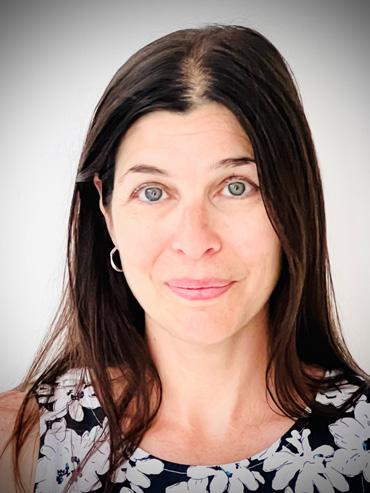
communicate and understand each other. Here are five modern-day drivers of workplace conflict, the skills we need to respond more effectively, and how leaders within organisations can embed these essential skills.
Despite the best of intentions, many teams today struggle to connect in meaningful ways. These five common dynamics often sit beneath the surface of workplace tension, and can quietly erode trust, communication and cohesion.
1. Weaker relationships, built on tasks, not trust With fewer spontaneous conversations and more transactional ways of working, it’s easy for relationships to become surface-level. When our interactions are limited to tasks and to-do lists, we miss the opportunity to build deeper understanding and connection. Without that foundation of trust, it’s harder to have honest conversations, especially when there’s disagreement or tension.
2. Social glue is missing
In busy, dispersed teams, informal connection often falls by the wayside. The opportunities for coffee catch-ups, impromptu desk chats or shared laughter over lunch, have been reduced. These light-touch moments might seem small, but they play a powerful role in smoothing tensions and reinforcing a sense of belonging. Without them, we’re more likely to misread situations or let minor issues fester. Even hybrid teams can foster these connections by building in regular virtual catch-ups and social interactions like virtual coffees.
3. Silence isn’t always golden
In fast-moving workplaces, less communication often becomes the norm. We assume others know what we mean, or we avoid tricky conversations altogether. But less communication can lead to increased misunderstanding, isolation and disengagement, especially when people don’t feel seen or heard.
4. Miscommunication hides in the medium
Our dependence on emails and messaging platforms means we often miss the nuances that help us understand each other: body language, tone of voice, and subtle social cues. Without these, the potential for misinterpretation increases, and with it, the risk of conflict. A comment that might be brushed off in person can land harshly in writing.
5. Conflict can disappear from view, until it’s too late
When we’re not in the same physical space, or we don’t build in regular virtual check-ins, it is easier to ignore early signs of conflict. People may avoid addressing issues directly, or they may not even realise a problem is brewing. But unspoken tension doesn’t disappear. It tends to grow quietly in the background, until it reaches a point where it’s much harder to resolve.
the communication skills that hold us together
In the face of today’s workplace pressures, it’s easy to fall into habits of rushed, reactive or surface-level communication. But when tensions arise, it’s the quality of our communication that will help us understand each other better and resolve the tensions we may feel in our workplace relationships. This is why how we listen, how we speak, and how we show up in conversation will determine whether conflict deepens or moves towards resolution.
These human-to-human skills are powerful tools for building trust, understanding and connection. And they can be learned, practised and strengthened, starting with how we listen.
One of the most powerful ways to reduce conflict and build better relationships at work is to listen. This sounds simple, but genuine listening requires intention, effort and self-awareness. It’s about more than being silent while the other person speaks. It’s about being fully present, and willing to hear what’s being said without rushing to respond.
In practice, this means noticing where your attention is. Are you focusing on the speaker, or are you preparing your next reply? Are you open to their perspective, even if it differs from your own? It takes courage and curiosity to listen to views that are different to our own.
Deeper listening: Check for understanding
If you don’t understand something, say so. Ask clarifying questions. You could say: “If I’m hearing you right, you’re saying X. Is that correct?” This not only shows that you’re making an effort to understand, but it also gives the other person the opportunity to feel heard and clarify their point of view.
When conversations get difficult, stay curious and calm. Try: “I’d like to understand more about where you’re coming from.” This sort of language creates the conditions for dialogue rather than debate. And dialogue is where connection and resolution can grow.
When we address conflict, how we speak matters as much as what we say. Rather than launching into a criticism, such as, “Your email made me really angry!”, try, “Are you free for a chat? I’d like to speak about the email you sent me, and how I felt about it. I’d also like to hear your perspective.”
Framing the conversation in this way invites openness and signals your commitment to the relationship. Collaborative conflict conversations use language like: “I value working with you,” or “I’d like to understand what’s going on for you.” Even when emotions run high, staying open-minded, curious and respectful can shift the tone in a constructive way.
Conflict is not inherently bad. When approached constructively, it can spark creativity and change, and strengthen our relationships. But in today’s working world, managing conflict well requires an intentional shift towards better communication, deeper listening, and more thoughtful engagement.
Many organisations are feeling the pressure. But those that invest in building these essential human skills, through training, coaching or specialist support, are setting their teams up for long-term success. In a future where connection and collaboration are key, this is an investment worth making.


By Raheena
Lalani Dahya LL.B., LL.M., Bloomsbury Mediation, Part-time Professor of Alternative Dispute Resolution, Longo Faculty of Business, Humber Polytechnic, Canada, Irene Grindell, Futurepoint Mediation, UK & Jess Goldsmith BSc (Hons), Futurepoint Mediation, UK
Conflict Resolution and Culture
- What’s the link?
Conflict in the workplace is inevitable and comes in all shapes and sizes, as do the approaches organisations take to address and resolve them. These approaches can range from proactively equipping teams with the skills to navigate and confidently address conflict, following formal grievance procedures, and everything in between, including coaching, mediation & investigations. An important consideration is the residual feeling parties are left with following repair-attempts or ‘resolution’. How do you want parties to feel, behave, talk about and role model - following a conflict? More importantly, how does this align to your Organisation’s culture?
What is Kintsugi?
Kintsugi is the Japanese art of taking a treasured vessel, traditionally a vase, that is passed down between the generations within a family; when the vessel eventually
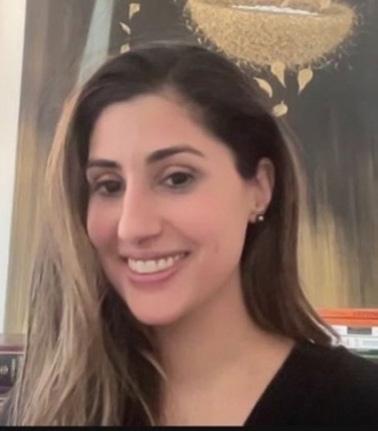
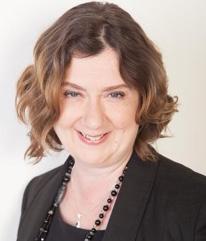

cracks or breaks, one mixes gold with adhesive urushi sap, and uses this mixture to fill the cracks, repairing the item.The result, aside from repair, is the creation of a strong, beautiful and unique object.
How do we create kintsugi in relationships? When conflict arises, relationships are impacted - from hairline fractures to being completely severed. To “kintsugi” a relationship, parties need to be brought back together, creating a joint way forward and paving a new future way of working and communicating.
To enable this to occur, people need to feel safe enough to communicate their true feelings, respectfully. Creating a space where shared understanding and common goals are recognised and agreed. Feeling heard, understood and cared for is paramount for what we call relational kintsugi to occur.
Following a successful mediation the adjectives parties often use such as ‘heard’, ‘understood’, ‘empowered’, these are tell-tale signs that relational kintsugi has taken place. As
we will outline below, relational kintsugi is the art of repairing relationships, rendering them stronger, more unique, and beautiful than they were to begin with.
We’ve touched on the “residual feeling” parties are left with following a conflict. When relational kintsugi has occurred, parties return to the workplace with a renewed sense of hope, empowerment and confidence. However, the positive impacts, at an individual level, are only half the story.
Pouring the metaphorical gold into the cracks of relationships dials down the temperature in the wider team and organisation, impacting the overall culture.
If we think of toxic behaviour, the kintsugi-repair introduces healthy relationship skills and ultimately creates room for better, rebuilt, stronger relationships to thrive. Organisations are made up of relationships – multiple people connected to multiple others. The quality of these relationships informs and impacts the overall organisational culture.
“Team psychological safety is a shared belief held by members of a team that it’s OK to take risks, to express their ideas and concerns, to speak up with questions, and to admit mistakes — all without fear of negative consequences.” –Amy Gallo, Harvard Business Review 1
Psychological safety is a prerequisite for relational kintsugi to occur. This requires trust, respect and openness. When organisations struggle to achieve these pre-conditions, not all is lost. A third party neutral, such as a facilitator or mediator, who can create these conditions can become an invaluable tool to catalyse relational repair.
Accepting that conflict will always occur, organisations
can choose how to respond. By nurturing an environment where employees constructively address, resolve and move forward following a conflict, creates psychological safety.
Another way to think about think about psychological safety is by thinking about the Window of Tolerance.
When people are within their window of tolerance (“WoT”), they are able to connect to their pre-frontal cortex, the part of the brain from which people engage in rational thinking, decision-making, and reasoning. From within the WoT people feel psychologically safe to engage in conversation, build relationships, share opinions, and feel comfortable to disagree and have difficult conversations.
When people are in conflict, they can often feel threatened, overwhelmed, uncomfortable with the subject matter, or conflict itself. This can lead to dysregulation.
When people exceed their window of tolerance, they are dysregulated. Dysregulation can be experienced as either hyper-dysregulation or hypo-dysregulation. Hyper-dysregulation can look like crying, screaming, yelling, ‘red face’, shaking; it can feel like looking perfectly calm on the outside but ‘seething on the inside’. Hypo-dysregulation can look like slumped shoulders, withdrawing, the body curling into itself, it can feel like suddenly becoming tired or sleepy in response to hearing something, or similarly, experiencing ‘fuzzy brain’. Hyper-dysregulation engages the fight or flight mechanisms; hypo-dysregulation engages most freeze mechanisms. 2
When we dysregulate, we cannot access our pre-frontal cortex; instead, we operate from the parts of our brain that take over when we are under threat. Fundamentally, we dysregulate when we feel psychologically unsafe.
Hyper-dysregulation examples: crying, screaming, skaking, red-face, hostility, hyper-vigilance, signs of
examples: withdrawing, slumping, fatigue,
‘fuzzy brain’ flat affect, signs of depression or disorientation.
Dysregulation can show up in the workplace as relational aggression.3 For example, ‘huffing and puffing’, eye-rolling, sabotage, diminishing and belittling others, exclusion, ‘freezing people out’, passive aggressive e-mails, flippant put-downs, or abusing a co-worker’s trust to gain social currency.
When multiple people within an organisation operate from a
place of dysregulation, thereby feeling psychologically unsafe, it begets a culture of dysregulation. Each conflict subtly yet fundamentally impacts each team, which can ripple into the wider organisational culture. Further, emotional contagion often sets in, emitting relational toxicity, contributing to a toxic workplace culture in which no one feels safe.
Culture is impacted by each relationship within the organisation; Each person’s state of regulation (psychological safety) is informed by culture
A trauma-informed mediator has the tools to support dysregulated parties, co-regulating (supporting and calming) them back into their window of tolerance. Similarly, when a trauma-informed trainer supports a team in developing conflict resolution skills, they support a team in developing self-regulation and co-regulation skills.
There are two pre-requisites required to resolve conflicts that involve dysregulation:
(1) knowledge and understanding of one’s own WoT; and
(2) a culture of a relational kintsugi (repair culture).
Together, these allow parties to risk being vulnerable and feel safe admitting, ‘I dysregulated in that moment’, when discussing a conflict-event. These disclosures create the foundations for meaningful apologies and genuine relational repair.
To paraphrase and extend Dan Siegel’s work 4 on attachment relationships: the quality of a relationship is not dictated by the severity of the rupture, but the quality of the repair. So too with organisational culture: the quality of the culture is not dictated by the rifts that occur but the extent to which relational repair is embedded as a core value.
Organisations have cultural choices to make: they can foster culture deliberately or allow the culture to emerge
organically. Relational kintsugi offers organisations the seeds to grow psychological safety. When conflict occurs, there are two options: do nothing or attempt repair. Doing nothing risks the status quo festering into a toxic culture. When repair is the choice, it can drive growth, innovation and organisational cohesion. Actively cultivating a ‘relational kintsugi culture’ allows your biggest asset – people, to thrive and be at their best.
References:
[1] Gallo, Amy, What Is Psychological Safety?, Harvard Business Review, February 15, 2023 [online: https://hbr.org/2023/02/what-ispsychological-safety] (last accessed June 17, 2025)
[2] These states are governed by the autonomic nervous system. ‘Fight and flight’ mechanisms are stimulated by the sympathetic nervous system, ‘freeze’ responses that are “accompanied by flaccidity of the muscles” (see Corrigan et al, below), such as feeling physically exhausted and ‘needing to stop’ are the result of parasympathetic nervous responses. However, ‘freeze’ responses that cohere with experiences of one being ‘scared stiff’ can be the result of both the sympathetic and parasympathetic nervous systems being co-activated at the same time, per: Corrigan, F M, Fisher J J, & Nutt DJ, Autonomic Dysregulation and the Window of Tolerance Model of the Effects of Complex Emotional Trauma, Journal of Psychopharmacology, 0(00) 1-9, 2010 [online: https://pubmed.ncbi. nlm.nih.gov/20093318/] (last accessed June 17, 2025)
[3] See, for example, Swit, Cara S., & Slater, Nicola M., Relational Aggression During Childhood: A Systematic Review, Aggression & Violent Behaviour, Vol. 58, May–June 2021, 101556 [online: https:// doi.org/10.1016/j.avb.2021.101556] (last accessed June 17, 2025)
[4] See, for example: Siegel, Daniel, The Developing Mind, 3rd ed, London: Guilford Press 2020


The business case for mediation is clearer than ever. According to Acas research, workplace conflict costs UK employers nearly £30 billion each year—a staggering figure driven not only by formal disputes, but by the lost productivity, turnover, and reputational damage that follow in their wake. Despite this, many organisations still rely on rigid, adversarial processes that can deepen divides rather than heal them.
The good news? Mediation offers an alternative—a human-centred, pragmatic and legally sound way to address conflict at its roots and rebuild trust. But shifting from a grievance culture to a resolution culture takes more than goodwill. It demands active engagement from leaders, HR and employees alike.
Drawing on my own experience as a mediator and the collective insights shared at events such as the recent
Winmark and Acas sessions, this article explores how to bring people “into the room,” build the business (and human) case for mediation, and foster cultures where a grown-up discussion about resolution is not a last resort, but a first instinct.
Convincing HR and Legal of mediation’s merits is one thing—getting reluctant employees to agree is quite another. Most employees and managers raised in traditional adversarial systems see workplace disputes as zero-sum games: someone is right, and someone is wrong and getting to a resolution requires proving it.
But in reality, few grievances are truly black and white. Mediation works because it acknowledges that conflict is rarely simple (or completely the fault of one or the other)—and that resolution does not need to be either.
Having a neutral mediator guiding a conversation can feel alien, or even threatening. So how do you persuade employees to engage? Our experience suggests that it comes down to carrot and stick:
Mediation’s well-established benefits—speed, discretion, flexibility and a 90% average success rate according to the 2023 CEDR Mediation Audit—can be powerful incentives. In mediation, employees retain control. They decide how much to share, when to take breaks and whether to continue. Unlike a grievance, where outcomes are imposed, mediation empowers individuals to co-create the outcome.
Employers have the right to make reasonable management requests. In most cases, asking employees to attempt mediation first is just that—reasonable. If an employee unreasonably refuses to engage, and that refusal contributes to a breakdown in the employment relationship, it is fair for the employer to take that refusal into account when considering next steps.
Importantly, none of this makes mediation compulsory. Voluntariness is a cornerstone of the process. But it does mean that employees cannot always use a refusal to mediate as a shield against accountability for the consequences of that refusal.
Employees’ reluctance to engage is often rooted in fear: fear of losing face, fear of retaliation or simply fear of the unknown. Mediators and HR teams can address these fears in advance by reframing the process:
• “I am right and they are wrong.” Remind participants that mediation is not about blame or vindication, but about finding solutions and building understanding. Formal processes often reveal shared culpability anyway—mediation just does it more quickly, with less collateral damage and sorts out a solution at the same time.
• Confidentiality worries.
Stress that mediation is a confidential process protected by law and mediation agreements. Breaching this confidentiality can be treated as misconduct. In contrast, formal grievances can involve larger audiences and weaker confidentiality protections.
• The principle of punishment.
For those seeking punishment of another rather than resolution, ask: What will change if formal processes fail to deliver the hoped-for outcome? Mediation does not preclude disciplinary action where needed—but it prioritises solutions that allow people to move forward. Revenge is not an attractive motivation for a complaint, since it is so rarely the solution to anything.
• Fear of confrontation.
Acknowledge that mediation can be daunting. Offer flexibility: separate sessions, neutral venues, breaks as
needed, and the option to be accompanied by a colleague or friend for moral support. Reassure employees that they will never be alone in the process and note that the stresses of a mediated discussion can be nothing compared to a formal adversarial grievance process.
It is easy to focus on the financial benefits of mediation— days or weeks to resolve versus months or years for a grievance and legal claim, and far lower costs in legal fees, recruitment and lost productivity. But the human case is equally compelling.
At a recent Winmark conference, 63% of attendees noted that their organisations hadn’t even considered mediation in recent instances of workplace conflict. Why? Because most managers have grown up in systems where the first step is a formal process, not a real conversation.
David Whincup, Employment Partner at Squire Patton Boggs, reinforced the legal reality: the Acas Code requires fair handling, not formal processes by default. Mediation fully meets that requirement almost every time. It is structured, confidential, and voluntary—but also bound by agreements that keep it safe and purposeful.
Mediation does not just resolve disputes. It builds capability—teaching people to listen, to give feedback and to disagree well. It models the behaviours that organisations need if they are to survive and thrive in an increasingly complex and polarised world.
In the end it is its essential simplicity which is the key. Ultimately you are asking your employees and managers to do no more than sit in a room with another adult and have a grown-up conversation about what matters which it is to their mutual best interests to resolve, to hear and be heard and then to consider what they need to put the issue behind them. There is nothing in law or the Acas Code which prevents that. If you are an adult and want something to change, how hard can that be, as a minimum compared to pleading your case in front of Legal and HR?
As organisations navigate an ever-changing world of work—marked by social tensions, generational divides and evolving legal landscapes—conflict is inevitable. But entrenched processes and fear-driven cultures are not. Mediation offers a way forward that is faster, more costeffective and more human. Formal grievances promise legal resolutions through the slowish adherence to written policies, but mediation offers real ones, both parties on board as designers of the solution, not victims of it.
By reframing conflict as an opportunity rather than a threat, we can build workplaces that do not just manage disputes but truly resolve them—restoring trust, strengthening relationships, and unlocking the full potential of every employee.
Everyone can resolve conflicts when they are empowered to create their own solutions. Sheridan Worldwide works globally to help people and organisations communicate effectively and strengthen working relationships through:

Focusing on team dynamics through honest and candid conversation coaching
Offering expert mediators
specialising in workplace and employment mediation



success rate in workplace mediation +90%
Providing strategic consulting
to support a shift to a resolution culture in mediation skills and conflict resolution
Coaching managers and leaders
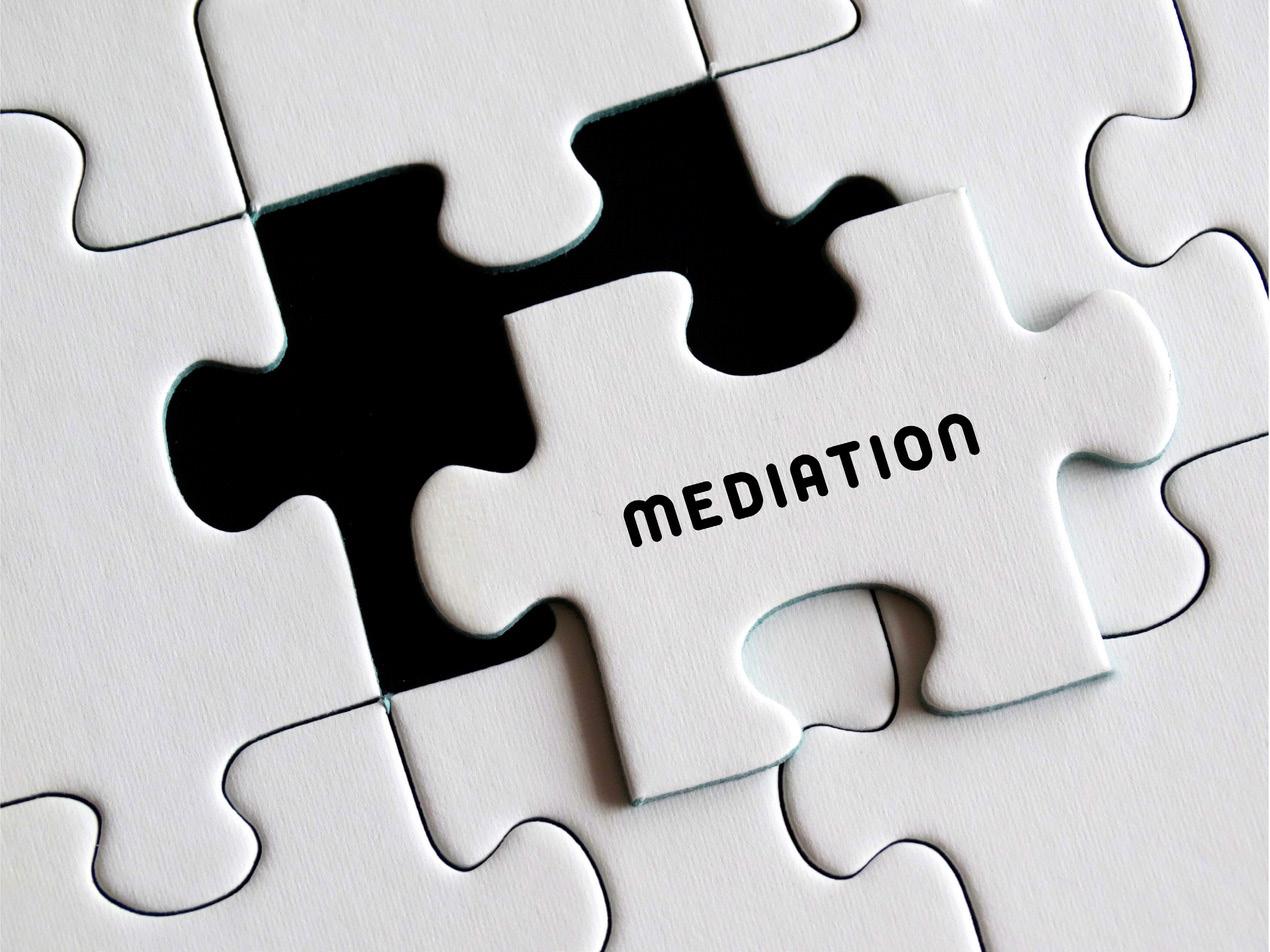



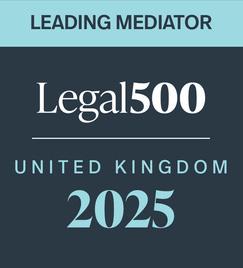







(1) MEDIATION PROVIDERS
(2) TR AINING PROVIDERS
(3)INTERNATIONAL MEDIATION PROVIDERS
t: +44 (0)20 7831 0254 e: alex.efthymiades@consensiopartners.co.uk w: www.consensiopartners.co.uk a: 30 Niton Street, London, SW6 6NJ Contact: Alex Efthymiades
Consensio is a leading workplace mediation provider, helping organisations to manage workplace conflict. Our services include: 1) mediation and conflict resolution training ranging from taster events to accredited training, 2) external mediation services for two-party and team disputes, 3) conflict coaching and 4) consultancy services to transform organisational responses to conflict.
t: +44 (0)1908 231 132 e: mary@focus-mediation.co.uk w: www.focus-mediation.co.uk
Contact: Mary Banham-Hall
Focus Mediation is a CMC Registered Provider, established in 1999 we cover the whole of the UK and handle all types of mediation cases.. We have a team of fully accredited Workplace, Civil/ Commercial and Family mediators with a wide range of professional backgrounds, ensuring you can choose the right specialist mediator for your dispute. We can help with all types of workplace and employment problems, our team have handled cases involving from 2 to 50+ people and can tailor the right programme to meet your needs saving you management time and costs...
t: +44 (0)20 7993 7600 e: mediationclerks@gclaw.co.uk w: gardencourtmediation.co.uk
a: 57-60 Lincoln’s Inn Fields, London WC2A 3LJ Contact: Lavinia Shaw-Brown
We offer a flexible, high-quality mediation service from the initial inquiry through to facilitating agreement. We have a team of experienced, professional mediators with the interpersonal skills to suit all civil, commercial, workplace and family disputes. Our aim is to help you find a resolution to the dispute quickly and effectively.
t: +44 (0)798 537 3010 e: james@inmancox.com w: www.inmancox.com
Established for over 5 years, Inman Cox Mediation are specialist workplace resolution mediators. We provide expert advice, mediation and co-mediation services as well as on-going support and training .ICM provides organisations with the tools needed to resolve future disputes and help prevent them from arising in the first instance. Working with a select number of organisations we work with HR professionals to get disputes resolved quickly. Our experience has led us to develop a number of bespoke training packages to deal with team dysfunction. Contact : James on 07985373010 or james@inmancox.com for a free consultation. www.inmancox.com




t: +44 (0)20 7127 9223 e: imoffice@independentmediators.co.uk w: www.independentmediators.co.uk
Launched in 2007, Independent Mediators (IM) is a leading UK and international mediation chambers. IM were awarded Who’s Who Legal Mediation Firm of the Year 2019 in May 2019. We manage the practices of nine of Europe’s leading full-time civil and commercial mediators; Charles Dodson, Phillip Howell-Richardson, Kate Jackson, Michel Kallipetis QC, Jonathan Lloyd-Jones, Mark Lomas QC, Bill Marsh, Andrew Paton and Nicholas Pryor. All nine mediators feature in the top tiers of the leading legal directories. They have mediated in excess of 8,500 matters between them in their careers. The commercial disputes mediated range in value from tens of thousands to multi-billion pounds and include almost every sector of business and law with parties from all over the UK and internationally.
t: +44 (0)333 014 4575 e: info@mediate.co.uk w: www.mediate.co.uk
a: The International Dispute Resolution Centre, 1 Paternoster Lane, London EC4M 7BQ
Contact: Joanne Claypole
Leading UK and International Mediation Chambers established in 1995. Handling civil, commercial, family, workplace and employment disputes. Our mediators have, between them, mediated thousands of disputes and many of our members are recognised as expert mediators by the legal directories. In addition, we offer a full case administration service; from helping the parties select a mediator to arranging the date, venue and paperwork necessary to make your mediation as smooth and as successful as possible.
t: +44 (0)20 7583 9808 e: mrushton@jamsadr.com w: www.jamsadr.com


JAMS is the world’s largest private provider of ADR services with a caseload of around 15,000 disputes a year. Its London office provides arbitrators and mediators for cross-border and UK domestic disputes as well as administering international arbitrations in various sectors.
t: +44 7958 973 389 e: karima.fahmy@independentneutral.com w: www.independentneutral.com
Karima is a CEDR accredited and CMC registered Civil, Commercial and Workplace mediator. Having practised as a Corporate lawyer for over 20 years, Karima has extensive experience of helping parties resolve their differences and reach mutually satisfactory outcomes. Karima’s mediation practice is focussed on employment and workplace disputes; real estate and construction disputes; joint venture, shareholder and board disputes. Prior to sitting as a mediator, Karima was General Counsel of an international real estate investment and development business. Prior to that she spent 10 years at Hogan Lovells. Karima brings experience of navigating complex and sensitive commercial and stakeholder contexts.

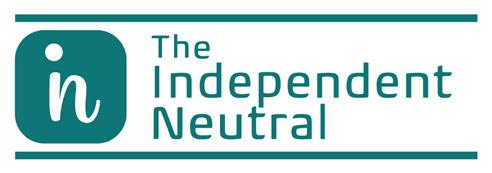

KINGSWAY LAW
t: +44 (0) 7825 894 893 e: larry.george@kingswaylaw.uk w: linkedin.com/in/larry-george-b9114a46 w: P.O. Box 516, Cambridge CB1 0BD Contact: Larry George
Qualified Barrister; CEDR accredited mediator, 2010. Larry has 30+ years of experience as a commercial legal adviser advising on corporate and commercial matters. He has specialised in the oil business including oil trading but also has a great deal of experience in general commercial areas including in contracts, terms of trade and related disputes. Mediation experience includes franchising, engineering contracts and professional negligence. Larry has wide international experience and is a fluent Russian speaker.

t: +44 (0)7957 8 12345 e: mia@miaforbespirie.com w: www.miaforbespirie.com
Mia Forbes Pirie is a mediator, executive coach and trainer. She works with teams, boards and directors, family businesses and individuals in conflict. Mia helps people to work better together and communicate under pressure. In addition to commercial clients, she has worked with MPs, governments, religious organisations, NGOs, and charities. Mia provides training online and in person. She is writing a book and working with UCL to help people Disagree Well. For more information see: www.miaforbespirie.com and her YouTube Channel : @miaforbespirie5289
t: +44 7905 868 058 e: tony@achievesuccess.org.uk w: www.maverickmediator.co.uk
Anthony Munday is an independent ACAS-accredited workplace mediator. He specialises in working with conflicted Senior Teams. His previous career as a detective and senior leader enables him to empathise with clients in senior management positions. He has developed a unique Conflict Resolution Method. Anthony works in partnership with HR Leaders to conduct a root-cause analysis of the impact of conflict in the organisation. The financial and human costs of conflict for the client are extrapolated. They use the client’s own data to create an inclusive and holistic Action Plan to mitigate future Risks and Costs.
t: +44 (0)20 3621 3908 w: www.promediate.co.uk
ProMediate provides mediation for the whole range of civil and employment disputes as well as being a CMC Registered Training Provider. We also resolve disputes between traders and consumers under the ADR Regulations. We have a panel of over 50 mediators available to mediate online by telephone or in person throughout the UK and in the EU.
ROGER LEVITT
t: +44 (0)7776 141 717 e: roger@rogerlevittmediation.co.uk w: www.rogerlevittmediation.co.uk
I undertake all types of commercial mediation including: Property, Construction, Partnership, Corporate, Professional Indemnity, Insurance Financial & Wills. Member of Civil Mediation Council Registration Committee. I’m approaching 100 mediations.



t: +44 (0)7932 762 448 e: robert@stillhr.com w: www.stillhr.com Contact: Robert Still Qualified workplace and team mediators. Robert Still FCIPD, Leye Oladapo and Paula Symons. Over 10 years’ experience across the UK and Europe. CMC Registered Mediation Provider 2019. Resolving individuals and team conflict.
t: +44 (0)20 3753 5350 e: caroline.sheridan@sheridanworldwide.com w: www.sheridanworldwide.com
Contact: Caroline Sheridan
At Sheridan, we help organisations worldwide maximise their potential and drive lasting change by providing the guidance and inspiration necessary for their people to succeed. Our award-winning work focuses on tailored one-to-one, team and group coaching to support the development of leadership and management capabilities, as well as mediation and conflict resolution interventions across the business. Our specialists in organisational culture, wellbeing, inclusion and team dynamics partner with clients to ensure a tailored approach. We supply our coaching and mediation services in the UK and internationally through our extensive faculty based around around the world in all key locations.
t: +44 (0)20 7092 3186 e: david.liddle@thetcmgroup.com w: www.thetcmgroup.com
TCM are a leading provider of conflict management, mediation, HR and leadership training and consultancy. We deliver tangible benefits to our customers by transforming conflict and change from a threat into an opportunity. For more details, please Read Managing Conflict (Kogan Page/ CIPD) available from https://amzn.eu/d/4jRZ7mB written by TCM’s CEO David Liddle.


t: +44 (0)7305 062 578 e: askforhelp@werestorecalm.com w: www.werestorecalm.com
At We Restore Calm, we recognise the growing impact of mental health challenges and conflicts in the workplace. We specialise in comprehensive mental health training, including Mental Health First England certified courses. We also offer state-of-the-art conflict resolution solutions ranging from executive coaching, mediation, to team workshops and neutral evaluations. The goal? To empower organisations like yours to enhance employee engagement, reduce absenteeism, and, in turn, boost overall productivity. Think of us as the catalyst to not just elevate your workplace atmosphere but also positively impact your bottom line. Let’s foster a resilient, harmonious, and productive environment together.

t: +44 (0)20 7831 0254 e: alex.efthymiades@consensiopartners.co.uk w: www.consensiopartners.co.uk a: 30 Niton Street, London, SW6 6NJ Contact: Alex Efthymiades
Consensio is a leading workplace mediation training provider, helping organisations to manage workplace conflict. Our services include: 1) mediation and conflict management training, ranging from taster events to accredited training, 2) external mediation services for two-party and team disputes, 3) conflict coaching and 4) consultancy services to transform organisational responses to conflict.
t: +44 7905 868 058 e: tony@achievesuccess.org.uk w: www.maverickmediator.co.uk
We are developing CPD-accredited training courses. Employment Conflict Resolution ACAS estimates the cost of workplace conflict as £28.5 billion per year in the UK. Do you know the costs in your organisation? We have developed a coherent and sustainable strategy that empowers you to mitigate the costs of workplace conflict. We use a root-cause analysis methodology using your data sets. Real-time. Real life. Working together with your People Team and the C Suite we create a realistic Action Plan that you implement. We support you moving forward, to embed the learning and cultural change.
t: +44 (0)20 3621 3908 w: www.promediate.co.uk
ProMediate provides mediation for the whole range of civil and employment disputes as well as being a CMC Registered Training Provider. We also resolve disputes between traders and consumers under the ADR Regulations. We have a panel of over 50 mediators available to mediate online by telephone or in person throughout the UK and in the EU.
t: +44 (0)7932 762 448 e: robert@stillhr.com w: www.stillhr.com Contact: Robert Still
Facilitated Conversations and Mediation Skills; delivered in-house by qualified and practicing workplace mediators, tailored to client organisational context, includes role play simulations using professional actors.
t: +44 (0)20 7092 3186 e: david.liddle@thetcmgroup.com w: www.thetcmgroup.com
TCM are a leading provider of conflict management, mediation, HR and leadership training and consultancy. We deliver tangible benefits to our customers by transforming conflict and change from a threat into an opportunity. For more details, please Read Managing Conflict (Kogan Page/ CIPD) available from https://amzn.eu/d/4jRZ7mB written by TCM’s CEO David Liddle.


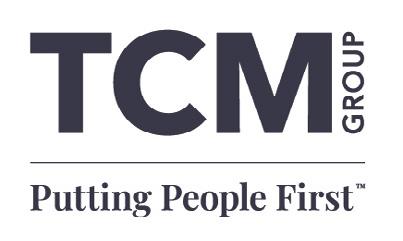

30% OFF ON DELEGATE PASSES USE CODE: MLC30




The Medico-Legal Conference has now firmly established itself as the UK's leading event bringing together medico-legal professionals, industry experts, and suppliers. Attend to experience our high-level programme of speakers, interactive exhibition zone, and networking.
The conference is being held on Thursday 7th May 2026.

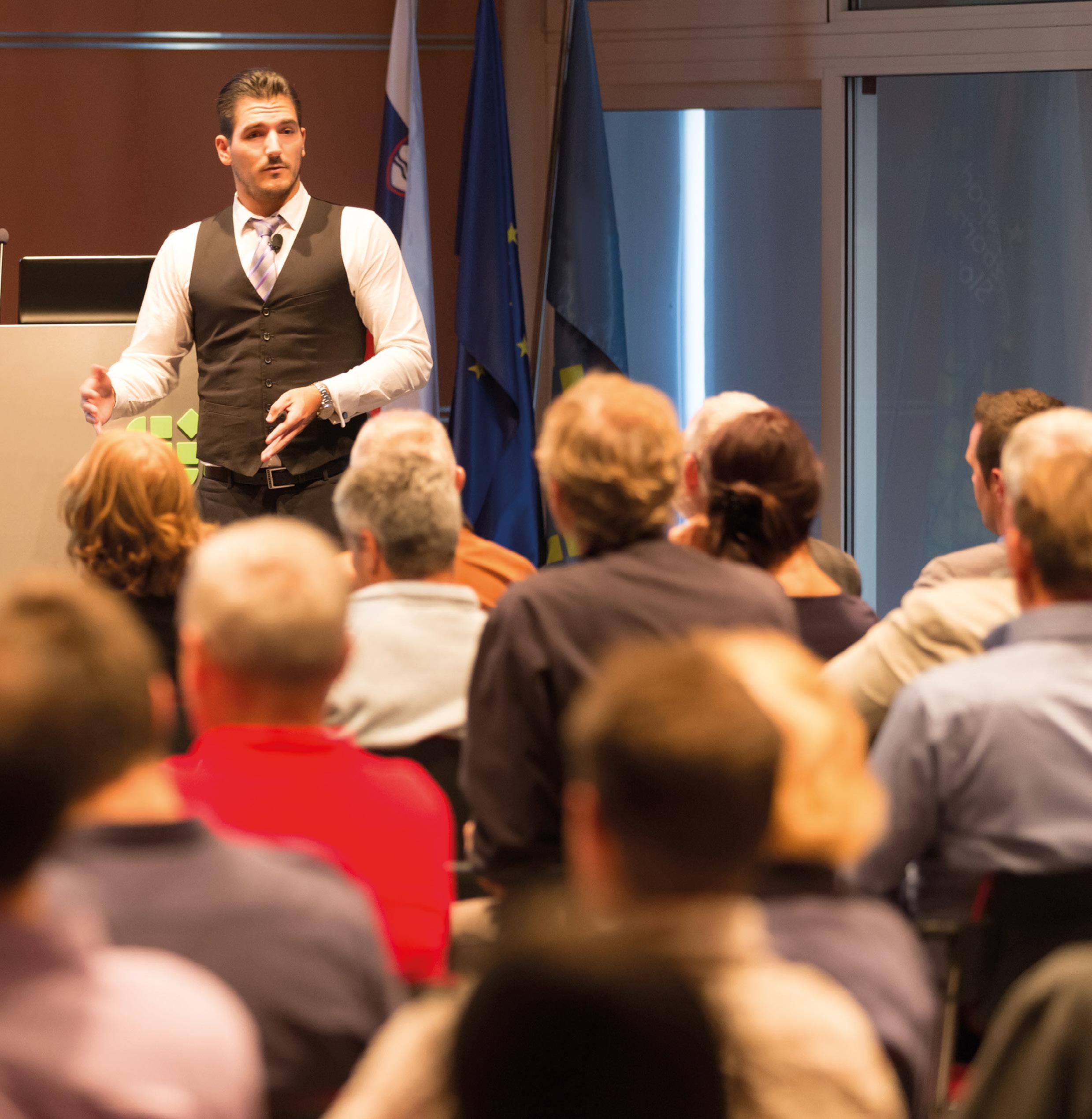

Book now and benefit from our 30% off offer.
Be nefits of Atte nding:
• Be updated on the latest medico-le gal developments, reforms and i ssues
Be nefits of Atte nding: SCAN
•
• Be updated on the latest medico-le gal developments, reforms and i ssues
• Be updated on the latest medico-le gal developments, reforms and i ssues
•
• in some of the most recent high profile cases
• ficulties
• in some of the most recent high profile cases
• Learn
• Learn about the increasing role of mediation in settling medico-legal claims
•
• ficulties
6 Hou r s C PD
• Enjoy excellent networking opport unities, including a Champagne reception
6 Hou r s C PD
t: +44 (0)20 7831 0254 e: alex.efthymiades@consensiopartners.co.uk w: www.consensiopartners.co.uk a: 30 Niton Street, London, SW6 6NJ Contact: Alex Efthymiades
Consensio is a leading workplace mediation and conflict management provider, supporting organisations to informally manage workplace conflict in the UK, Europe and Asia.

t: +44 (0)333 014 4575 e: info@mediate.co.uk w: www.mediate.co.uk
a: The International Dispute Resolution Centre, 1 Paternoster Lane, London EC4M 7BQ
Contact: Joanne Claypole
Leading UK and International Mediation Chambers established in 1995. Handling civil, commercial, family, workplace and employment disputes. Our mediators have, between them, mediated thousands of disputes and many of our members are recognised as expert mediators by the legal directories. In addition, we offer a full case administration service; from helping the parties select a mediator to arranging the date, venue and paperwork necessary to make your mediation as smooth and as successful as possible.

t: +44 (0)20 7127 9223 e: imoffice@independentmediators.co.uk w: www.independentmediators.co.uk
Launched in 2007, Independent Mediators (IM) is a leading UK and international mediation chambers. IM were awarded Who’s Who Legal Mediation Firm of the Year 2019 in May 2019. We manage the practices of nine of Europe’s leading full-time civil and commercial mediators; Charles Dodson, Phillip Howell-Richardson, Kate Jackson, Michel Kallipetis QC, Jonathan Lloyd-Jones, Mark Lomas QC, Bill Marsh, Andrew Paton and Nicholas Pryor. All nine mediators feature in the top tiers of the leading legal directories. They have mediated in excess of 8,500 matters between them in their careers. The commercial disputes mediated range in value from tens of thousands to multi-billion pounds and include almost every sector of business and law with parties from all over the UK and internationally.
t: +44 (0)20 3621 3908 w: www.promediate.co.uk

ProMediate provides mediation for the whole range of civil and employment disputes as well as being a CMC Registered Training Provider. We also resolve disputes between traders and consumers under the ADR Regulations. We have a panel of over 50 mediators available to mediate online by telephone or in person throughout the UK and in the EU.

t: +44 (0)20 7092 3186 e: david.liddle@thetcmgroup.com w: www.thetcmgroup.com
The TCM Group designs and delivers award winning mediation, conflict management, employee relations and leadership consultancy in the UK and globally. We can deliver assignments across the world, often at short notice. Our fully accredited mediation, investigation and leadership training programmes can be adapted to meet your political, legal or cultural context. Our highly experienced tutors, mediators and facilitators are available to support you at every stage of your resolution journey plus, we apply industry leading technology to support our assignments. Please contact us now on +44 207 092 3186 for more information and a no obligation discussion.


‘Your discussions with mediator are not shared without your consent’

Timing and agenda to suit your needs

All parties agree to participate to try

Fixed fee which is far cheaper than court.

You agree the outcome, solution and any agreement

‘ Mediation can be completed within 14 days’

The mediator does not judge or take sides


Simpler process than litigation/court

Retention/ Recruitment
Mediation ensures disputing parties feel understood and heard. Ideal for emotionally charged disputes, mediation can calm the conflict driving the dispute whereas adversarial argument and positioning inflames and drives conflict and escalates disputes.
Mediation can help parties to agree a solution, draw a line and move forward or continue relationships between business partners, employees and employers and friends, neighbours and family. It can salvage and protect reputations.
Litigation is expensive and can take years and frequently the costs exceed the value of the dispute.


Improves teamwork/ productivity/ profitability

e: jean.mcdougall@focuscivilmediation.co.uk
w: www.focus-mediation.co.uk
t: +44 (0)7706 705149




Train














30th June 2025, Congress Centre, London
9:00AM - Opening Keynote: Early, informal resolution – the key to good workplace relations?
Kevin Rowan, Director of Dispute Resolution, ACAS
9:40AM - Transforming Work: How mediation can be used to align People, Culture and Leadership
David Liddle, Chief Executive, TCM Group
10:20AM - Cultivating a great place to work. A case study on culture change and accountability at the BBC
Heather Palmer, BBC Senior HR Business Partner Employee Relations (Head of Support at Work), BBC
10:50AM - Refreshments & Networking
11:10AM - Three Essential Conflict Management Skills for People in Organisations Today and in the Future
Alexandra Efthymiades, Director and Co-founder, Consensio
11:50AM - How to get the best out of your mediation training?
Paul O’Donnell, Managing Director, CMP
12:20PM - Making mediation an everyday conversation
Caroline Sheridan, CEO and Mediator, Sheridan Worldwide Tracey Fox, Mediator, CEDR and Sheridan Worldwide
David Whincup, Partner and Employment Lawyer, Squire Patton Boggs
1:00PM - Lunch and Networking
2:00PM - The Unseen Factor: Navigating Psychological Diversity in Workplace Conflict
Marie Coombes, CEO, We Restore Calm
2:30PM - Diverse Mediators: Creating an Inclusive Strategic Space to Enhance Mediation Success!
Selina Morgan-Gayle, Founder, CEO & Mediator, SMG Mediation Ltd
Simone Bowman, Barrister, Chair Lambeth Mediation Service
Insley Ettienne, Founder/Director, Cosil Solutions Limited
3:00PM - Mediating at the edge - using mediation for sexual harassment and whistleblowing cases
Liz Rivers, Mediator, IPOS Mediation
Jane Gunn, Mediator, IPOS Mediation
3:30PM - Refreshment & Networking
3:50PM - Before the Break: Mediators Supporting Organisational Climate with Courage and Compassion. An interactive session on early intervention, Ubuntu Round Tables, and building cultures of connection in uncertain times.
Sarah Boulton, Head of Ubuntu Round Tables Programme and Organisational Development Consultant
Tutu Foundation UK and Realise
4:30PM - Mediation in Focus - the ‘Joint Meeting’
Joanna Nunn, Assistant Chief Conciliator, Acas
5:10PM - Closing Comments









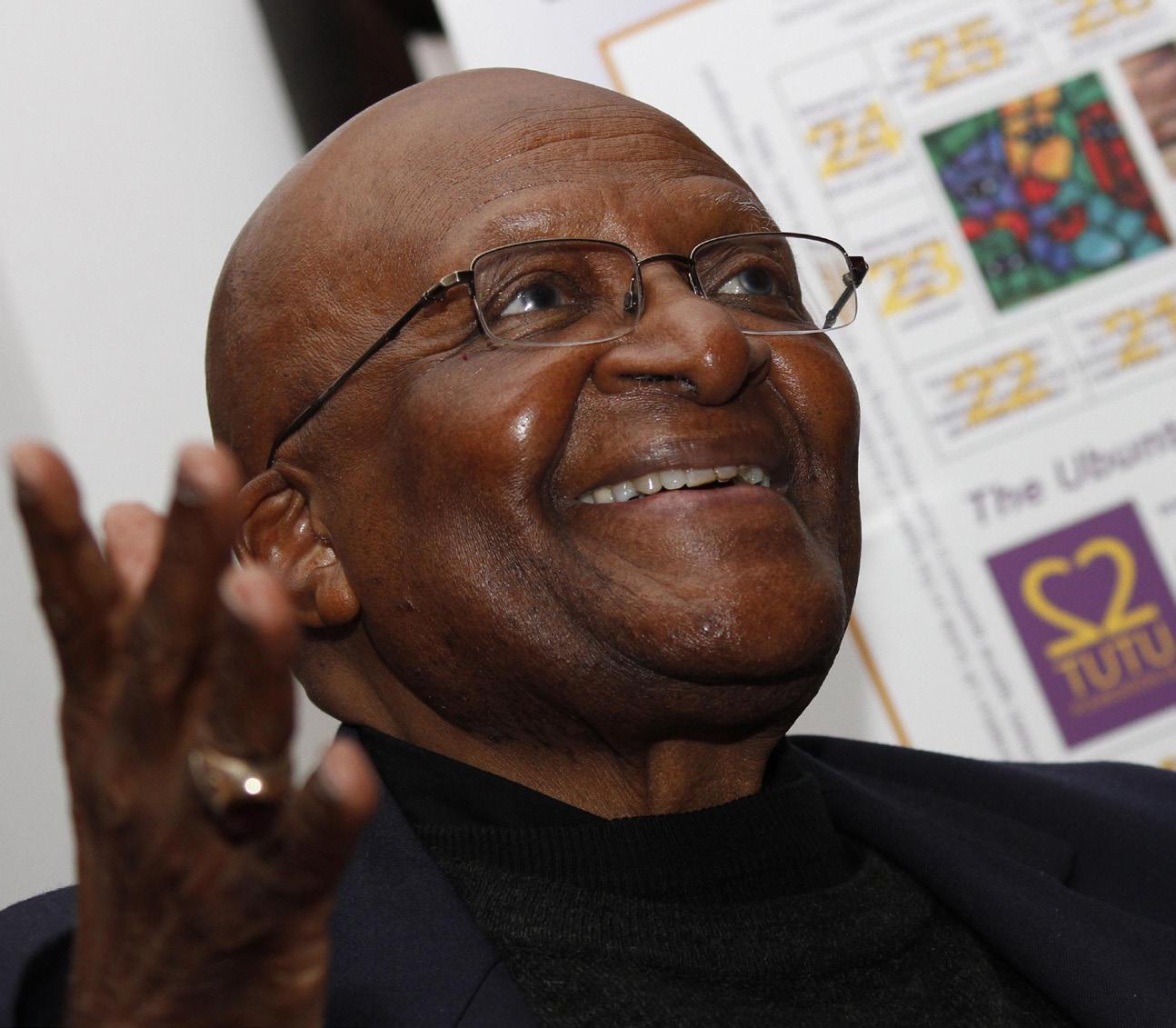










9:00AM
OPENING
Kevin Rowan, Director of Dispute Resolution, ACAS
Workplace disputes come at a significant cost to the economy - £2.8bn to the due to sickness caused by conflict; £10.5bn due to dismissals caused by conflict; £12bn due to people resigning because of workplace conflict. Staggering figures that can’t be ignored.
In his keynote speech, new Acas Dispute Resolution Director, Kevin Rowan, will propose a framework for embedding good employment relations from small enterprises to national systems. Kevin will also share embargoed new findings from unpublished Acas research on what ‘informal conflict resolution’ in the workplace looks like, the impacts from using alternative dispute resolution, and calls for a more deliberate, confident approach to informal resolution – how we think about it and do it.s, retributive, adversarial, corrosive, reductive and divisive. He will suggest that mediators have a responsibility to deliver real leadership at a time where so many are advocating division, dogma, and danger.
9:40AM TRANSFORMING WORK: HOW MEDIATION
David Liddle, Chief Executive, The TCM Group
This In today’s complex and rapidly changing workplaces, conflict is inevitable - but poorly managed conflict is not. In this keynote, David Liddle, founder of The TCM Group and a pioneer of transformational workplace culture, explores how mediation is no longer just a tool for resolving disputes - it is a vital catalyst for cultural and leadership alignment. Drawing on over 20 years of practice and thought leadership, David will demonstrate how embedding mediation principles into everyday leadership, HR, and cultural practices creates more just, inclusive, resilient, and high-performing organisations. Delegates will discover practical strategies for integrating mediation into organisational frameworks, unlocking the true potential of their people and reinforcing valuesled leadership. This session will inspire attendees to see mediation not as an add-on, but as a core driver of transformational change.
10:20AM
Heather Palmer, BBC Senior HR Business Partner Employee Relations (Head of Support at Work), BBC
This session will develop how organisations need to be leaders of good practice and build psychologically safe and inclusive workplaces for all. Creating a sense of belonging, collaboration and buy in to build confidence and clarity on how we work with others and what to do when things happen that fail to meet these. Growth and learning from the BBC journey of Resolution First.
10:50AM REFRESHMENTS & NETWORKING









11:10AM THREE ESSENTIAL CONFLICT MANAGEMENT SKILLS FOR PEOPLE IN ORGANISATIONS TODAY AND IN THE FUTURE
Alexandra Efthymiades, Director and Co-founder, Consensio
All working relationships experience conflict at some point. While many relationships manage conflict effectively, others become damaged and need the support of mediators and conflict coaches to help resolve conflict. Today, many organisations are putting more focus and investment into informal resolution, yet employees are still likely to end up in destructive conflict. This interactive session will explore three key conflict management skills that are needed in every organisation, to help all employees build stronger and more resilient working relationships, now and in the future.
11:50AM
Paul O’Donnell, Managing Director, CMP
You’ve completed your mediation training, so what next? At CMP, we know that real mediator confidence and capability come from more than just behind-the-screen learning. This session, hosted by Paul O’Donnell, CMP’s Managing Director, explores how to make the most of your training investment by embracing continuous, blended learning. You’ll discover how to deepen your mediation skills through real-world application and ongoing development. Drawing on CMP’s proven approach to building conflict capability, we’ll show you how to turn training into long-term professional growth, supporting not just individual excellence but lasting impact within your organisation.
12:20PM
Caroline Sheridan, CEO and Mediator, Sheridan Worldwide Tracey Fox, Mediator, CEDR and Sheridan Worldwide David Whincup, Partner and Employment Lawyer, Squire Patton Boggs
Why do so many organisations wait for conflict to escalate before taking action? And why do individuals shy away from the everyday conversations that could make working life less stressful, more collaborative and more fulfilling? In this panel discussion, Sheridan Worldwide’s CEO Caroline Sheridan joins Mediator Tracey Fox and Employment Partner David Whincup to explore the mindsets, beliefs and practical barriers that prevent proactive conflict management. They’ll unpack how fear of making a mistake often blocks the development of a resolution culture and suggest that the better way forward involves embedding mediation skills, building confidence and creating workplaces where healthy dialogue is the norm, not the exception.
1:00PM
LUNCH AND NETWORKING









2:00PM
Marie Coombes, CEO, We Restore Calm
Conflict is rarely just about the issue on the table; it’s about the unseen differences underneath it. In this interactive session, Marie Coombes explores how psychological diversity - including neurodivergence, mental health variability, trauma, and sensory processing differences - impacts workplace conversations and conflicts. Participants will challenge assumptions, uncover hidden dynamics, and learn why traditional conflict approaches often fail diverse teams. Through live activities and practical strategies, attendees will build an “Inclusive Conversation Toolkit” they can immediately apply. Whether managing a mediation, leading a meeting, or simply having a tough conversation, this session will equip you to create psychologically safe spaces where diverse thinking styles aren’t just accommodated, they are actively supported. Come ready to think differently, engage fully, and leave with new tools to make the invisible, visible.
2:30PM
Selina Morgan-Gayle, Founder, CEO & Mediator, SMG Mediation Ltd
Simone Bowman, Barrister, Chair Lambeth Mediation Service
Insley Ettienne, Founder/Director, Cosil Solutions Limited
When conflict arises, the mediator you choose can either escalate tension—or unlock resolution. What if the missing link isn’t process, but perspective?
This dynamic session, led by pioneering mediators Selina, Simone, and Insley, reframes diversity not as a moral checkbox but as a strategic business advantage. With cultural intelligence, lived experience, and cross-sector expertise, diverse mediators build trust more quickly, engage more meaningfully, and deliver stronger outcomes across legal, employment, workplace, business, and property disputes.
The session explores how inclusive mediation enhances trust, connection, and effectiveness by reflecting the communities it serves. It challenges outdated assumptions and positions representation, accessibility, and equity as critical levers for organisational resilience.
Delegates will leave with actionable strategies for embedding inclusion into conflict resolution—through procurement, policy, and panel selection—aligning mediation with today’s workforce realities and tomorrow’s business demands.
If your organisation is ready to resolve conflict—not just contain it—this is where the future of mediation begins.









3:00PM
MEDIATING AT THE EDGE - USING MEDIATION FOR SEXUAL HARASSMENT AND WHISTLEBLOWING CASES
Liz Rivers, Mediator, IPOS Mediation
Jane Gunn, Mediator, IPOS Mediation
Sexual harassment and whistleblowing cases are some of the trickiest situations for HR to deal with - handled poorly these allegations can ruin the reputations of leaders and organisations. Given this, you might think that formal investigation is the only appropriate response. Liz and Jane will share real life case studies of how mediation can be used to resolve these delicate situations in a way where everyone is satisfied and nothing is swept under the carpet.
3:30PM REFRESHMENT & NETWORKING
3:50PM BEFORE THE BREAK: MEDIATORS SUPPORTING ORGANISATIONAL CLIMATE WITH COURAGE AND COMPASSION. AN INTERACTIVE SESSION ON EARLY INTERVENTION, UBUNTU ROUND TABLES, AND BUILDING CULTURES OF CONNECTION IN UNCERTAIN TIMES
Sarah Boulton, Head of Ubuntu Round Tables Programme and Organisational Development Consultant Tutu Foundation UK and Realise
In today’s context of uncertainty and change, the risk of tension escalating into entrenched conflict threatens to increase. While policies and skills act as anchors and encourage positive behaviour, it’s the everyday human experiences- how people feel, connect, and respond under pressure that shape the climate of working life. Mediators, internal and external, have a vital role in supporting early, compassionate interventions that strengthen trust and connection. This interactive session explores how to recognise early signals of conflict, lead with courage, and use interventions like Ubuntu Round Tables to support organisations as communities - fostering cultures of understanding, resilience, and repair - before the break.
4:30PM MEDIATION IN FOCUS - THE ‘JOINT MEETING’
Joanna Nunn, Assistant Chief Conciliator, Acas
In this session, Acas experts will focus on the ‘joint meeting’ aspect of the mediation process. They will deliver a small demonstration of the ‘joint meeting’ with one mediator and the two parties. They will cover:
• The mediators opening statement to both parties about how the joint meeting will run, rules/behaviours etc
• The opening positions of both parties
• The gathering in of areas of concern
• Communication – picking a starting point
5:10PM
CLOSING COMMENTS










Matthew Stadlen is a British television and radio presenter with experience in hosting 400 live events. He has presented and produced TV shows for the BBC, hosted twice weekly radio shows on LBC and written The Matthew Stadlen Interview in the Telegraph. He has interviewed leading names from business, politics, sport and entertainment.

Sarah has over 30 years’ experience consulting, facilitating, and mediating in public and private sectors. She specialises in developing organisational cultures grounded in trust, openness, and honest dialogue. Her work builds relational capability, supporting leaders, teams, and organisations to navigate tensions and conflict by strengthening the quality of connection. For over two decades, Sarah has championed the value of collaborative technologies, using them to foster deeper connection and create environments where everyone can contribute openly and efficiently, whether online or in person. Her passion lies in guiding individuals and teams to work effectively together, helping clients cultivate cultures where strong relationships foster organisational development. Alongside her consulting work, she is currently Head of Ubuntu Round Tables Programmes at the Tutu Foundation UK.

Simone Bowman, a practising Barrister and Chair, Director of the esteemed charity Lambeth Mediation Service. She is the founder and director of Bowman Law Caribbean established in 2016. And, is a tenant Barrister of The Barrister Group. A Civil and Commercial Accredited Mediator who trained with London School of Mediation, [2013] Simone is a seasoned legal practitioner spanning over 2 decades in Family and Chancery Law. She is a practising Attorney at Law in several Caribbean jurisdictions, where she is often asked to mediate cross jurisdictional property, commercial, inheritance, and family disputes. Simone shares her passion for dispute resolution by advocating and delivering training at all levels from community to international companies. Simone is an avid Spurs fan by default of her teenage son.










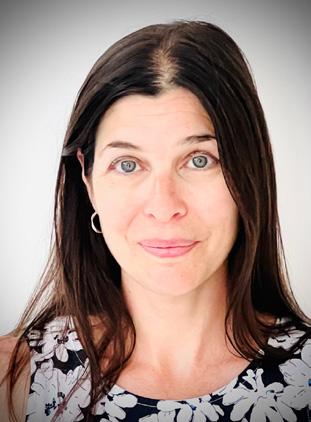
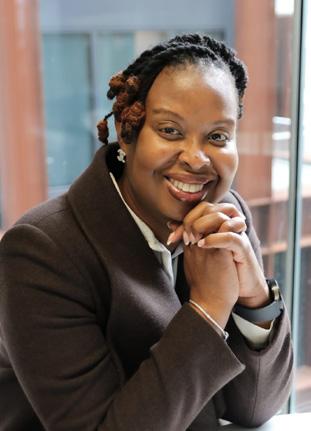

Marie Coombes is an award-winning workplace mediator, trainer, and speaker with a passion for neurodiversity, mental well-being, and conflict resolution. With over 300 successful mediations across diverse sectors, she specialises in creating psychologically safe workplaces by bridging the gap between employees, unions, and management. A leader in diversityaware mediation, Marie’s innovative approach to mental health, trauma, and neurodivergence has earned her national recognition, including the 2024 Diversity & Inclusion Award. Backed by an MBA and Fellowship from the Chartered Management Institute, she is a catalyst for change; transforming workplace cultures, tackling toxic environments, and empowering individuals to thrive.
Alexandra has nearly 20 years of experience in the field of organisational conflict resolution and mediation. She holds two Master’s degrees, including an M.A. in Organisational Psychology. She has worked internationally in New York and at the United Nations in Geneva. Alexandra is the co-founder and Director of Consensio, one of the UK’s leading conflict management and workplace mediation services providers. Consensio empowers clients to informally manage workplace conflict and build resilient workplaces, enhancing the well-being of organisations and their people. Consensio offers support in all areas of conflict management, providing consultancy, leadership development, training, e-learning, coaching and mediation services. Clients include: the BBC, British Gas, Bupa, Nespresso, Sony, University of Cambridge, Westminster City Council, NHS Trusts, WWF and Unicef.
Insley Ettienne is a Civil & Commercial Mediator, Trainee Solicitor, and the Founder of Cosil Solutions Ltd, a consultancy specialising in property dispute resolution. She holds a law degree and brings over 20 years of experience in social housing, leasehold services, and dispute prevention. Known for her practical and compliance-focused approach, Insley helps local authorities, landlords, housing associations, and developers resolve complex issues without litigation. She is the creator of the R.E.S.O.L.V.E. framework and was shortlisted for Advocate Mediator of the Year 2024. Insley champions early intervention and structured mediation to drive ethical, cost-effective outcomes across the property sector.
Tracey is a transformative mediator, with over 20 years’ experience in resolving complex and emotionally charged disputes. CEDR Accredited since 2003, Tracey is a proficient neutral with an impressive track record of successfully engaging in a diverse spectrum of cases, from employment, workplace and commercial, through to clinical negligence and private health care matters. In addition, Tracey is a highly respected global conflict management consultant (working with trade unions through to UN agencies), a leadership coach (clients from the creative industries through to leading global financial markets), and a facilitator including being Lead Faculty for CEDR’s flagship Mediator Skills Training course for commercial mediators and Negotiation Skills Training.









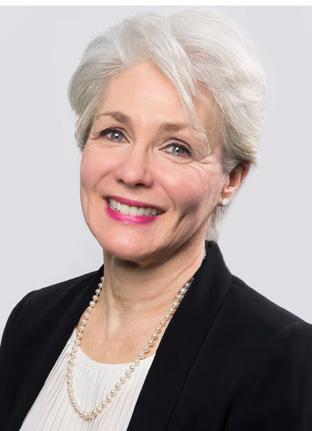

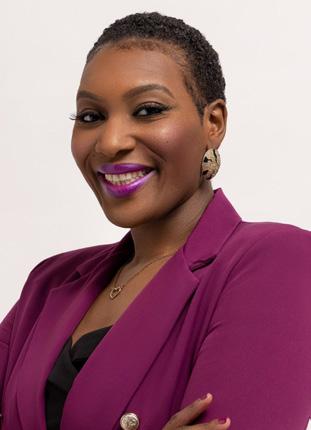
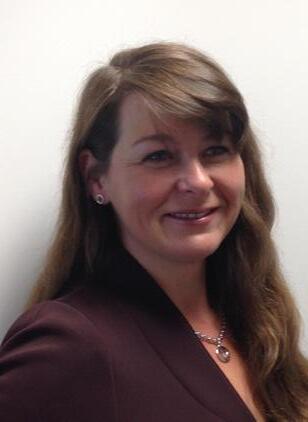


Jane Gunn is an expert in the field of conflict resolution, a trained mediator and facilitator, known to her clients as “The Barefoot Mediator”. Listed as a Global Leader in Who’s Who Mediation and featured in Legal 500 Hall of Fame, she is the author of 3 popular books “How to Beat Bedlam In The Boardroom And Boredom In The Bedroom”, “The Authority Guide To Conflict Resolution” and “The Mole and The Mountain”. She has spoken at the United Nations, The White House and the European Commission.
David established The TCM Group in 2001. He has built a world class team with a reputation to match. TCM specialises in the three areas of culture, climate and conflict resolution. In 2021, David was recognised as a top HR most influential thinker and he is a member of the prestigious Thinkers 50 Radar. He is author of two books Managing Conflict and Transformational Culture published by Kogan Page. The latter was shortlisted for business book of the year 2022 and the 2nd edition of Managing Conflict is being published in October 2023. David is also president of the People and Culture Association (www.peopleprofessionals.org).
Selina Morgan-Gayle Founder, CEO & Mediator of SMG Mediation, the acronym for ‘Settlement through Mediation with our Guidance’. Selina is the First Black Female multi award-winning Mediator and Mediation service company in the UK, awarded Mediation Champion of The Year 2018, Mediator of The Year 2019/2020 by London Prestige Awards, Finalist for Best Woman in Business in Legal Services and Certificate of Excellence for Legal services Bark 2019 and Woman 4 Africa in Legal 2022 Finalist. Selina’s proven track record provides individuals and businesses a dispute resolution through mediation for their legal disputes in Civil & Commercial, Employment, Workplace and Family areas, in person and online. Purposefully taking pride in building and rebuilding relationships in a safe environment to resolve their conflicts.
Joanna is the Assistant Chief Conciliator leading the collective conciliation team covering the South of England and Wales. As an accomplished Conciliator, Facilitator and Mediator she works with and supports organisations and trade unions through their dispute resolution processes as well assisting parties to improve their industrial relations pre and post dispute. Joanna has been an Acas mediator for 16 years, during which time she has also trained mediators both internally and for externally organisations.
Paul O’Donnell is Managing Director at CMP, bringing with him over 20 years’ experience in training and capability development. He has extensive experience in helping organisations build practical conflict and communication skills through blended, experiential learning that delivers lasting impact.








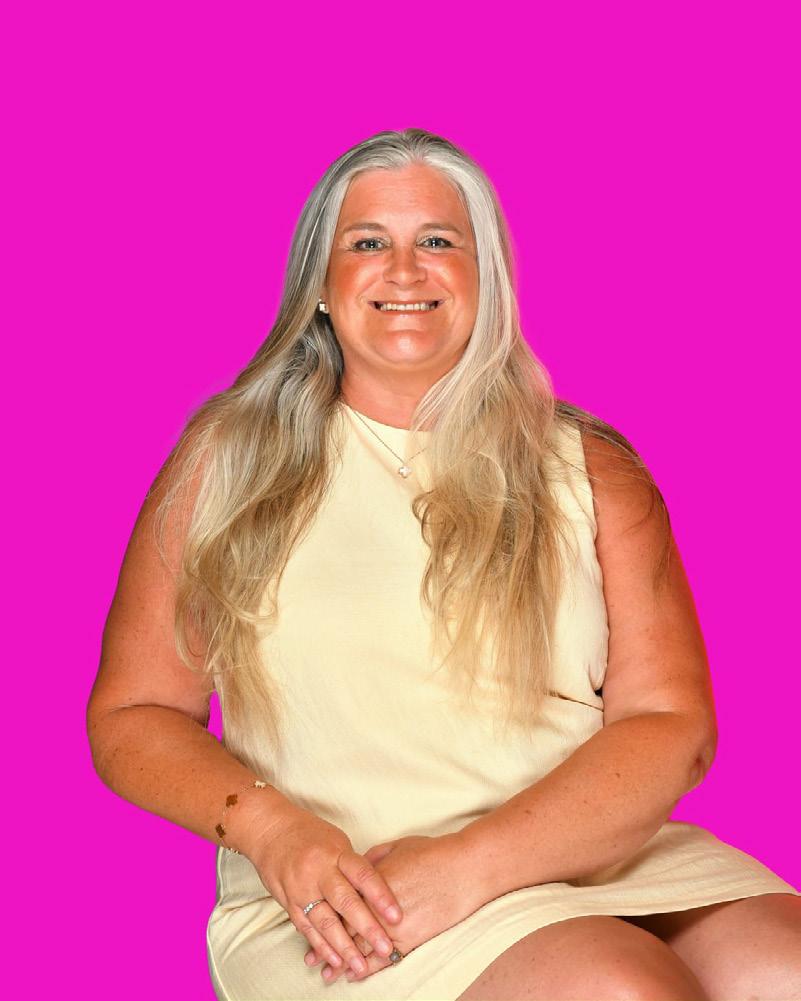

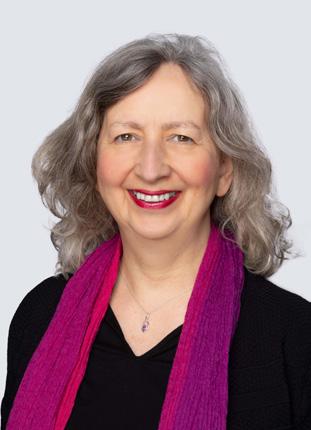

Heather Palmer FCIPD joined the BBC in 2019 and currently leads the Employee Relations Support at Work team at the BBC. She has spent her career in enhancing workplace culture and building great places to work across public and private sector organisations, from Marks and Spencer, PwC, the Police Service of Northern Ireland and BBC. An Award winning change leader she places people at the heart of all she does. Heather has been a featured public speaker and thought leader on human resources, ways of working and transforming the people experience A first class Honours graduate in HR Management and Marketing from University of Stirling, post graduate diploma in Public policy and currently attending Cranfield University studying Executive leadership. A qualified Neuro-linguistic practitioner and hypnotherapist she works with individuals and organisations to transform and achieve potential.
Kevin Rowan joined Acas as Director of Dispute Resolution in March 2025. Prior to this, he was Head of Organisation and Services at the Trade Union Congress, responsible for trade union renewal, public services and transport policy, regional policy, workplace learning and the TUC’s extensive programme of workplace representative training. Kevin has had many non-executive director roles over his career, including being a member of Acas Council, representing the interests of workers, collaborating with other board members to tackle issues such as HSE effectiveness, inclusion, L&D and equality and diversity.
Liz Rivers is a workplace mediation expert, women’s leadership coach and member of the IPOS panel. In the 1990s she became the first woman in the UK to be a CEDR accredited mediator, she is listed in The Legal 500 as a top mediator and has been mediating for over 30 years. She was a commercial litigation solicitor in the City with Eversheds Sutherland for over a decade and is a member of the CEDR training faculty, training mediators around the world. Liz was invited to give evidence to the House of Commons Women and Equalities Select Committee on the use of mediation to address sexual harassment disputes in the workplace. She has been interviewed live on BBC Radio 4 and her work has been featured in the Guardian.
CEDR accredited in 2006, Caroline Sheridan, CEO is a member of the CEDR Chambers and sits on the Civil Mediation Council’s Mediation Standards Board. Caroline chaired the CMC’s Workplace & Employment group for a number of years and is also a former CMC Board Director. She like many of her colleagues across the mediation landscape has been successful in driving increased awareness of the benefits of mediation in those roles.










David’s 40 year experience as a specialist employment law practitioner covers a wide variety of employment-related issues, including recruitment, disciplinary and grievance procedures, the defence of employee discrimination and dismissal claims, employee health, data protection and intellectual property and confidentiality matters among others. David’s clients span from senior individuals to household-name corporates and across all sectors, with particular expertise in the financial services sector. David is a well-known speaker on employment matters, both in-house to clients and for commercial training providers, and is a regular contributor to employment publications. He is an accredited CEDR Mediator and a keen exponent of the role of mediation in the modern workplace, scoring significant successes for corporate and individual clients through that route. He is a member of the workplace and employment sub-group of the Civil Mediation Council. David was recently named in the Best Lawyers in the United Kingdom and Who’s Who Legal publications and has been a fixture in both the Chambers and The Legal 500 directories for many years.












w: www.acas.org.uk

Acas is a Government agency, independent from Ministerial control. We provide free and impartial advice to employers, employees and their representatives on employment rights and best practice and policies; and have a statutory role to resolve workplace conflict between groups of employees (often via trade unions) and their employers, between individual employees, and between individuals and their employers. Our front line services and research and policy programme provide deep insight on the world of work which we use to identify opportunities and influence policy makers.
w: www.cmpsolutions.com
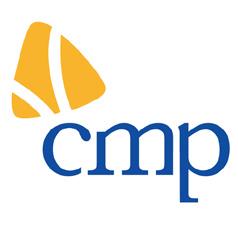
CMP helps organisations build positive workplace cultures by addressing behaviours that hinder engagement and creativity. Since 1989, CMP has provided consultancy, HR/ER policy support, coaching, training, and third-party services like mediation, neutral assessment, and investigations. Innovators in workplace mediation, CMP launched the UK’s first in-house mediation service and is the only investigation provider certified to the BS102000 Standard. CMP’s Clear Air Culture approach fosters environments where individuals thrive, differences are embraced, and disagreements are handled constructively.
w: www.cosilsolutions.co.uk

Cosil Solutions Ltd is a specialist property mediation and consultancy firm supporting landlords, local authorities, developers, housing associations, and legal teams. We resolve disputes efficiently and ethically, helping organisations avoid costly litigation and reputational risk. With 20+ years of sector experience, we bring deep housing knowledge and legal insight to every engagement. Our signature R.E.S.O.L.V.E. framework underpins all mediation, offering a structured and tailored approach to lease, tenancy, and contractual matters. From preventative strategy to conflict resolution, Cosil Solutions empowers clients to act with clarity, reduce delays, and drive compliance. We’re committed to practical outcomes that strengthen long-term relationships.









w: www.consensiopartners.co.uk
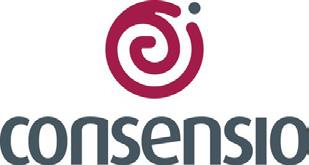
Consensio is a leading workplace mediation provider, helping organisations to manage workplace conflict. Our services include: 1) mediation and conflict resolution training ranging from taster events to accredited training, 2) external mediation services for two-party and team disputes, 3) conflict coaching and 4) consultancy services to transform organisational responses to conflict.
LAMBETH MEDIATION SERVICE
w: www.lambethmediation.org.uk
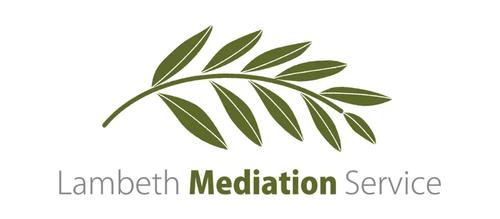
Lambeth Mediation Service (LMS) is a dispute resolution charity based in the heart of London’s Borough of Lambeth. Since our founding over thirty five years ago, we have helped residents in the local and wider community offering community, workplace, residential and commercial property and family mediation. Our founding members practiced mediation in response to community conflict during the 1980s Brixton Riots. They saw mediation’s potential to challenge perceptions, question assumptions and change attitudes, and founded Lambeth Mediation Service as a result. Since then, we are proud to have collaborated with Lambeth Council, Islington Council, Members of Parliament, the Restorative Justice Council, the London Community Mediation Council and other local services to promote mediation as a peaceful conflict resolution strategy. Contact us for further information on our bespoke dispute resolution services and training.
IPOS MEDIATION
w: www.mediate.co.uk

IPOS Mediation is an award-winning dispute resolution chambers of over 30 mediators, offering negotiation, facilitation and mediation. Whether it’s help with difficult conversations or a costeffective alternative to litigation, you can trust us to bring parties closer together. We mediate a full range of civil and commercial, family business, workplace, employment and public sector disputes. We’re known as ‘the Oxbridge of mediators’, bringing together the best of the best. Over 30 years our mediators have mediated over 20,000 disputes. The majority of our mediators have been recognised in the Legal 500 and Chambers & Partners for their expertise and experience.









SHERIDAN WORLDWIDE
w: www.sheridanworldwide.com

At Sheridan, we help organisations worldwide maximise their potential and drive lasting change by providing the guidance and inspiration necessary for their people to succeed. Our award-winning work focuses on tailored one-to-one, team and group coaching to support the development of leadership and management capabilities, as well as mediation and conflict resolution interventions across the business. Our specialists in organisational culture, wellbeing, inclusion and team dynamics partner with clients to ensure a tailored approach. We supply our coaching and mediation services in the UK and internationally through our extensive faculty based around around the world in all key locations.
SMG MEDIATION LTD
w: www.smgmediation.co.uk

SMG Mediation the acronym for ‘Settlement through Mediation with our Guidance’ is a leading multi-award-winning Mediator’s and Mediation service company in the UK, awarded Mediation Champion of The Year by CMC Council, Mediator of The Year by London Prestige Awards, Certificate of Excellence for Legal service by Bark. SMG Mediation’s proven track record comes highly recommended by organisations to provide individuals and businesses a dispute resolution through mediation for their legal disputes and specialises in Civil & Commercial, Employment, Workplace and Family areas, in person and online. Selina Morgan-Gayle is a highly sought Mediator driving the practice in providing a safe space to resolve conflicts.
THE TCM GROUP
w: www.thetcmgroup.com

The TCM Group is a leading provider of conflict resolution, culture change, human resources and leadership consultancy services. Headquartered in London and New York, TCM specialises in supporting their customers to prevent and resolve complex issues resulting from restructures, M&As, and corporate change. They also support their global customers - including the BBC, HSBC, Bloomberg, KPMG and many others - to integrate purpose driven, values based and person centred workplace cultures. David Liddle is a recognised leader in his field and he is a highly sought after keynote speaker. He has published two bestselling texts with a third on its way.









TUTU FOUNDATION UK
w: www.tutufoundationuk.org
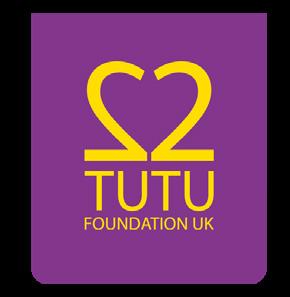
The Tutu Foundation UK’s mission is to prevent conflict, resolve tensions and help build collaborative, resilient communities and workplaces across the UK. Grounded in the human-centred philosophy of Ubuntu, the Foundation offers facilitation and mediation services that promote mutual understanding, trust and accountability. Operating at the heart of social and organisational change, it supports teams, groups and stakeholders from diverse backgrounds in addressing division, navigating complex relationships -moving from confrontation to constructive dialogue. Through its impactful projects, the Foundation has helped groups manage conflict more effectively, build trust and foster greater shared understanding and common ground. Ubuntu Round Tables offer a powerful model for meaningful connection-creating space for deeper engagement where perspectives may otherwise clash. “My humanity is caught up and is inextricably bound up in yours. We belong in a bundle of life. We say a person is a person through other persons,” Desmond Tutu








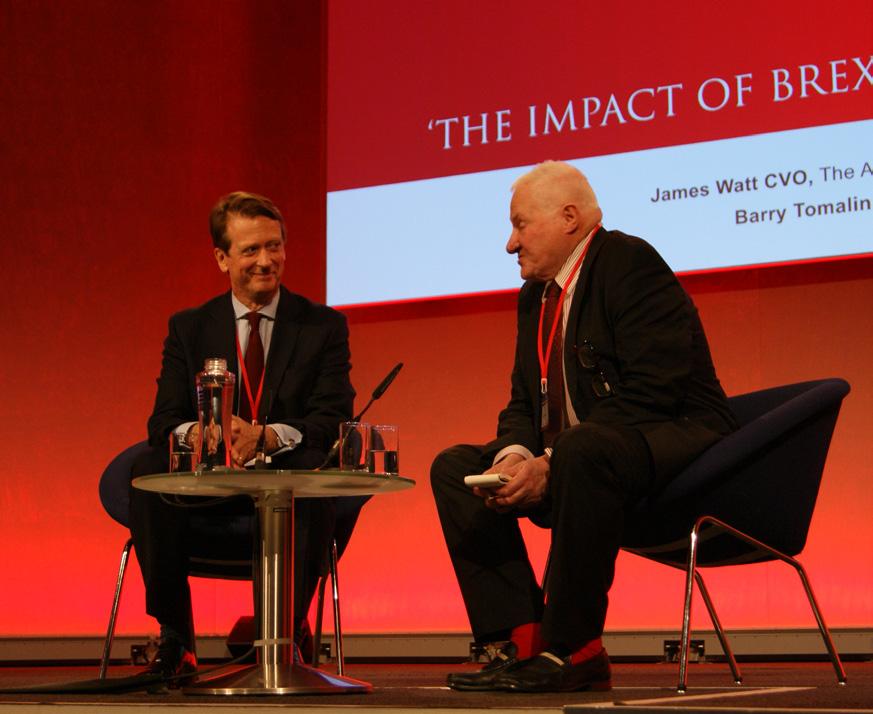

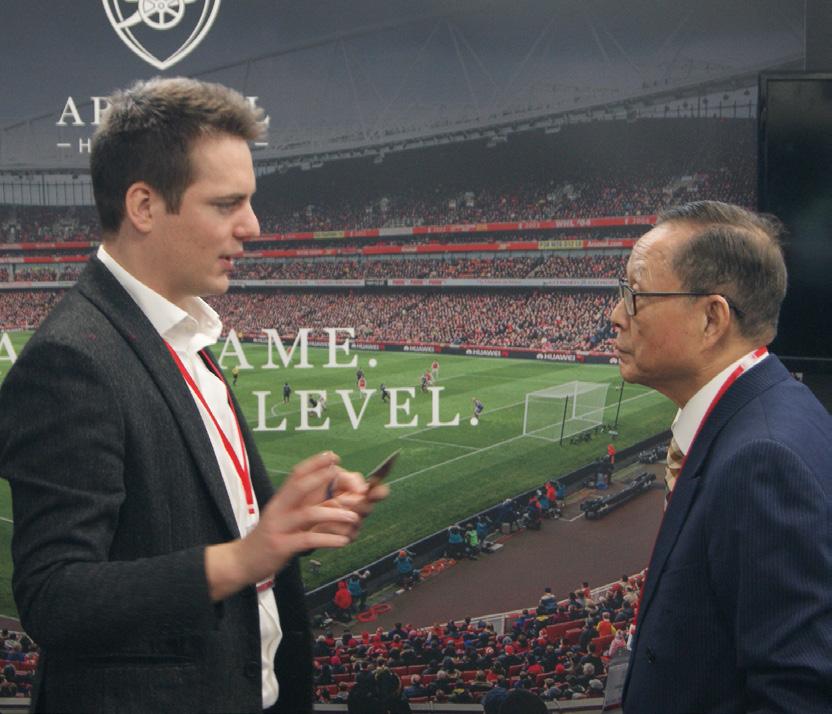
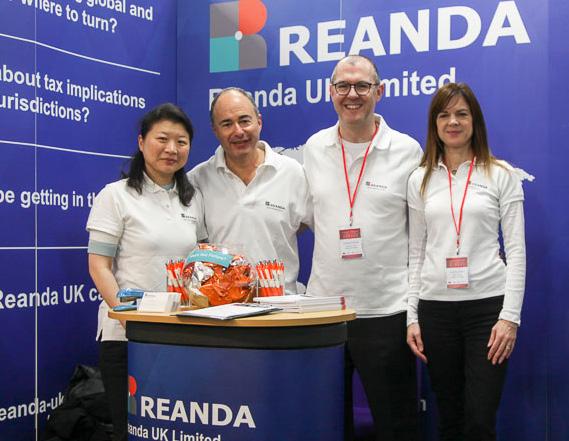

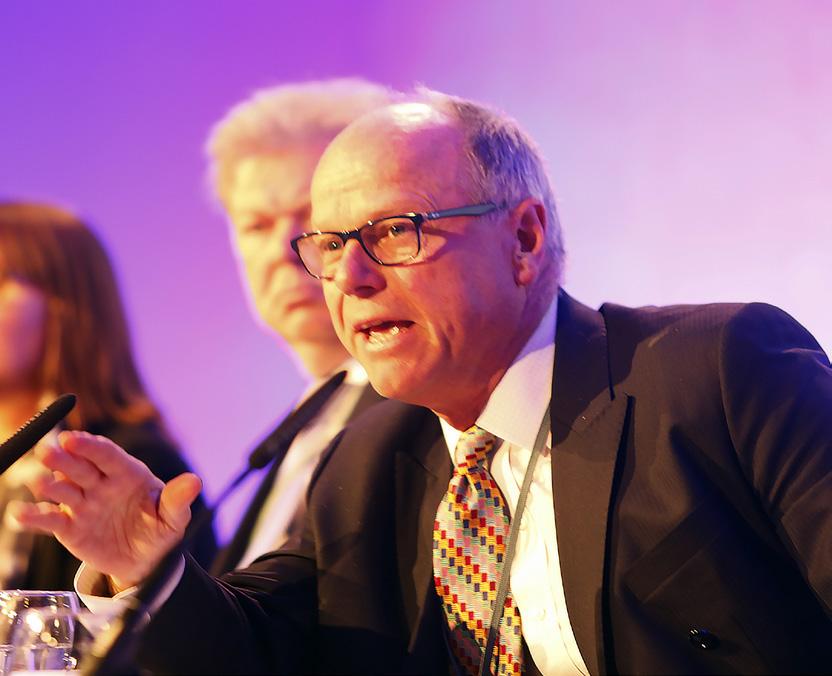







Our live events portfolio of conferences and exhibitions brings together leading Government officials, trade organisations, business leaders, industry experts, thought leaders and trade associations. Amassing the most relevant and high profile delegates, our events offer highly targeted environments to network and conduct business. Whether you would like to find out more information about scheduled events or would like to discuss event partnerships please get in touch.









